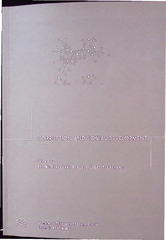Corruption and social development
Уређивачки рад (Објављена верзија)
Метаподаци
Приказ свих података о документуАпстракт
The aim of the conference “Corruption and Social Development” is to explore the multidimensional phenomenon of corruption starting from its various definitions: administrative, public interest, economic, philosophical, as well as its understanding in the original Aristotelian meaning of generation and corruption. “We are to distinguish the causes,” writes Aristotle in the first passage of his book on Generation and Corruption, “and to state the definitions, of these processes considered in general – as changes predicable uniformly of all the things that come-to-be and pass-away by nature.” When instead of using ‘come-to-be’ and ‘pass-away’ we use the Greek or Latin terms (generation and corruption), the words expand to cover a much larger semantic field than the Aristotelian cosmogony. How does the meaning of coming to be and decay transfer from physics into biology, or from philosophy to medicine? To what extent does a biopolitical interpretation of generation and corruption follow th...e processes that occur in a society, in a state? How does corruption destroy institutions, and is it possible to strive towards uninterrupted social progress? Do not sensationalist platitudes about rooting out corruption in fact hide an inefficiency of political program and a stagnated ideology? How are its gangrenous manifestations in the justice system cleansed? Could a radical theoretical or institutional procedure establish control over the cancerous effects of corruption? These questions, along with many others, will be at the core of this international interdisciplinary gathering on corruption.
Кључне речи:
corruption / korupcija / interdisciplinarni pristupИзвор:
Corruption and social development, 2013Издавач:
- Beograd : Institut za filozofiju i društvenu teoriju
Колекције
Институција/група
IFDT(2013). Corruption and social development. in Corruption and social development Beograd : Institut za filozofiju i društvenu teoriju.. https://hdl.handle.net/21.15107/rcub_rifdt_897
Corruption and social development. in Corruption and social development. 2013;. https://hdl.handle.net/21.15107/rcub_rifdt_897 .
"Corruption and social development" in Corruption and social development (2013), https://hdl.handle.net/21.15107/rcub_rifdt_897 .



